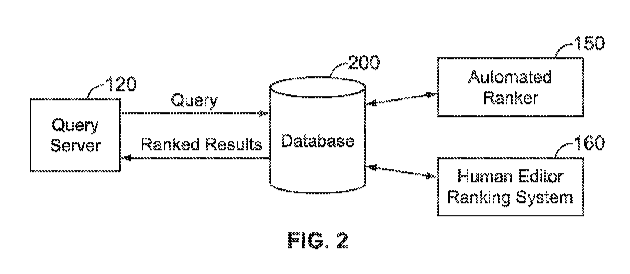 Remember when Yahoo was nothing more than a directory of the best links on the Web as determined by human editors? The Web is too vast for any humans to keep track of, but what if you could combine the heavy lifting of computers with the smarts and expert knowledge of humans? Well, Yahoo now has a patent for that.
Remember when Yahoo was nothing more than a directory of the best links on the Web as determined by human editors? The Web is too vast for any humans to keep track of, but what if you could combine the heavy lifting of computers with the smarts and expert knowledge of humans? Well, Yahoo now has a patent for that.
Yahoo today was awarded a U.S. patent for a “Method and apparatus for search ranking using human input and automated ranking”, which was originally filed more than 7 years ago. The patent, numbered 7,599,911, can be viewed on the USPTO website.
The patented method described in the documents calculates search rankings based on a combination of automated algorithms and human editor input. In the patent, Yahoo describes a way that previously-collected input from human editors can be mixed in (“blended”) with what its search algorithms return, essentially resulting in better search results.

In the description, Yahoo admits there are disadvantages to human editors (mainly caused by the sheer volume of information available on the Web), but says the benefits are clear:
Ranking by human editors reviewing search results provides more relevant ranking than automated processes and even search users, because human editors possess better intelligence than the best software and more clearly understand distinctions in pages, and human editors focus on areas of their expertise. For example, a human editor would more easily spot a page that is irrelevant but contains terms designed to get a high ranking from an automated process.
I wonder about two things. First, since the patent application was filed back in August 2002, is it still relevant for Yahoo considering the advances that have been made in search technology over the past few years? And second, how does it feel about being awarded the patent now that it has basically sold off its search business to Microsoft? Too little, too late.